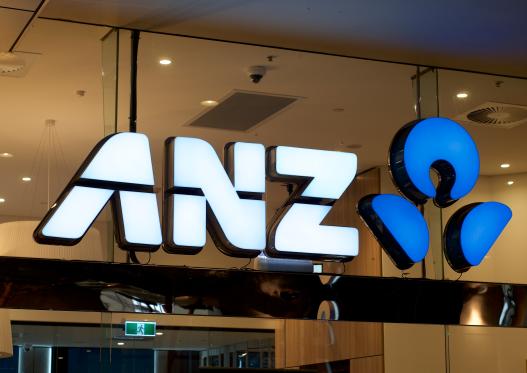The Association of Superannuation Funds of Australia (ASFA) has released new research that found young Australians increasingly rely on and trust social media for financial advice, which can exacerbate the risks of costly financial cybercrime.
“We commissioned this research to better understand where people of different age groups are getting help to make decisions on their super. It’s alarming to see the reliance of social media so prevalent for people under 35 but it also illustrates their desire for information,” said ASFA’s CEO, Mary Delahunty.
The research also indicates that all age cohorts are under-advised, highlighting the urgent need to make financial advice from trusted sources more accessible and affordable to ensure favourable retirement outcomes for all Australians.
Cybercrime vulnerability
Young Australians aged 18–34 are around twice as likely to source financial advice from social media than those aged 35–49.
Of the 51% of those aged 18–34 who say they have ever sourced financial advice relating to retirement or superannuation, social media was the second-most common (15%) source of advice, after friends and family (36%). Only 6% had sought advice from professional advisers, and 6% had been advised through their super funds.
According to the Australian Institute of Criminology, younger Australians are consistently more likely to report having been cybercrime victims than their older counterparts.
Examples of scams involving superannuation include criminals posing as advisers convincing fund members to transfer their super fund balances to them under the guise of setting up a self-managed super fund.
Scammers also offer to help fund members effect an early withdrawal of their super — for example, by misrepresenting medical problems — collecting a “fee,” and stealing personal data.
“We are seeing a much higher degree of trust in social media-sourced advice from younger Australians, with 33% of those in the 18–34 cohort saying they trust social media advice, compared to 18% in the 35–49 cohort,” Ms Delahunty said,
“As an industry, we have seen a number of examples of high-pressure marketing tactics, including targeting account holders through social media, which ASIC has identified as a growing concern.
“Most scams begin through interactions over platforms like Reddit, TikTok, and X. Young people’s personal trust in social media advice, combined with an increased likelihood to seek advice over social media, makes them particularly vulnerable to cybercrime and exploitation that threatens their superannuation balances and consequently a comfortable retirement.”
Ensuring Australians have access to a trusted source of financial advice
Another concerning statistic from the research shows that Australians in all age cohorts are underserviced with financial advice, according to the report.
“It’s concerning to see that around half of Australians of all ages have never accessed financial advice. Quality financial advice can make the difference between financial insecurity and a comfortable retirement,” Ms Delahunty added.
Increasing the availability of low-cost, high-quality financial advice, including through super funds, can help address the current problems.
“The problem that underpins both young Australians’ reliance on social media for financial advice and all age groups’ lack of advice is that advice from trusted sources is too costly and difficult to access,” Ms Delahunty said.
Superannuation fund trustees have existing obligations to act in their members’ best financial interests and a specific duty to assist members with their retirement needs. This underpins a high level of consumer protection for members receiving advice.
As acknowledged last week by Assistant Treasurer, Stephen Jones, ASFA is working with the industry to implement a serious of practical measures to keep Australians’ retirement savings secure and mitigate the risk of fraud.
ASFA continues to call for legislative amendments that ensure increased accessibility of advice for all Australians about their retirement from trusted sources.
“We recently saw progress being made on this problem with the passage of the first tranche of the Delivering Better Financial Outcomes Bill. But there is still more work to be done, and ASFA looks forward to working constructively with the government on the next tranche of changes," Ms Delahunty said.
The Joint Associations Working Group (JAWG), comprising representatives of key financial services industry and financial advice professional associations including FINSIA, continues to work with the government on the next tranche of changes in ensuring greater quality in advice services.
The research also indicates that all age cohorts are under-advised, highlighting the urgent need to make financial advice from trusted sources more accessible and affordable to ensure favourable retirement outcomes for all Australians.
“The research highlights a critical gap in financial planning that affects Australians regardless of their age,” FINSIA CEO Yasser El-Ansary CA, F FIN said.
"This under-advisement points to an urgent need for financial advice to be both more accessible and affordable.
“This why the Joint Associations Working Group (JAWG), comprising representatives of key financial services industry and financial advice professional associations continues to advocate for the need of ensuring greater quality in advice services."
Advice in Australia is unaffordable and inaccessible, with the cost of advice in Australia currently out of reach for many consumers, costing more than $5,000 in many cases.
The Treasury Laws Amendment (Delivering Better Financial Outcomes and Other Measures) Bill 2024 is currently tabled into Parliament after consultation on proposed draft legislation closed last December. It aims to implement some of the Quality of Advice Review recommendations which sought to better enable the provision of high quality, accessible and affordable financial advice to retail clients.







